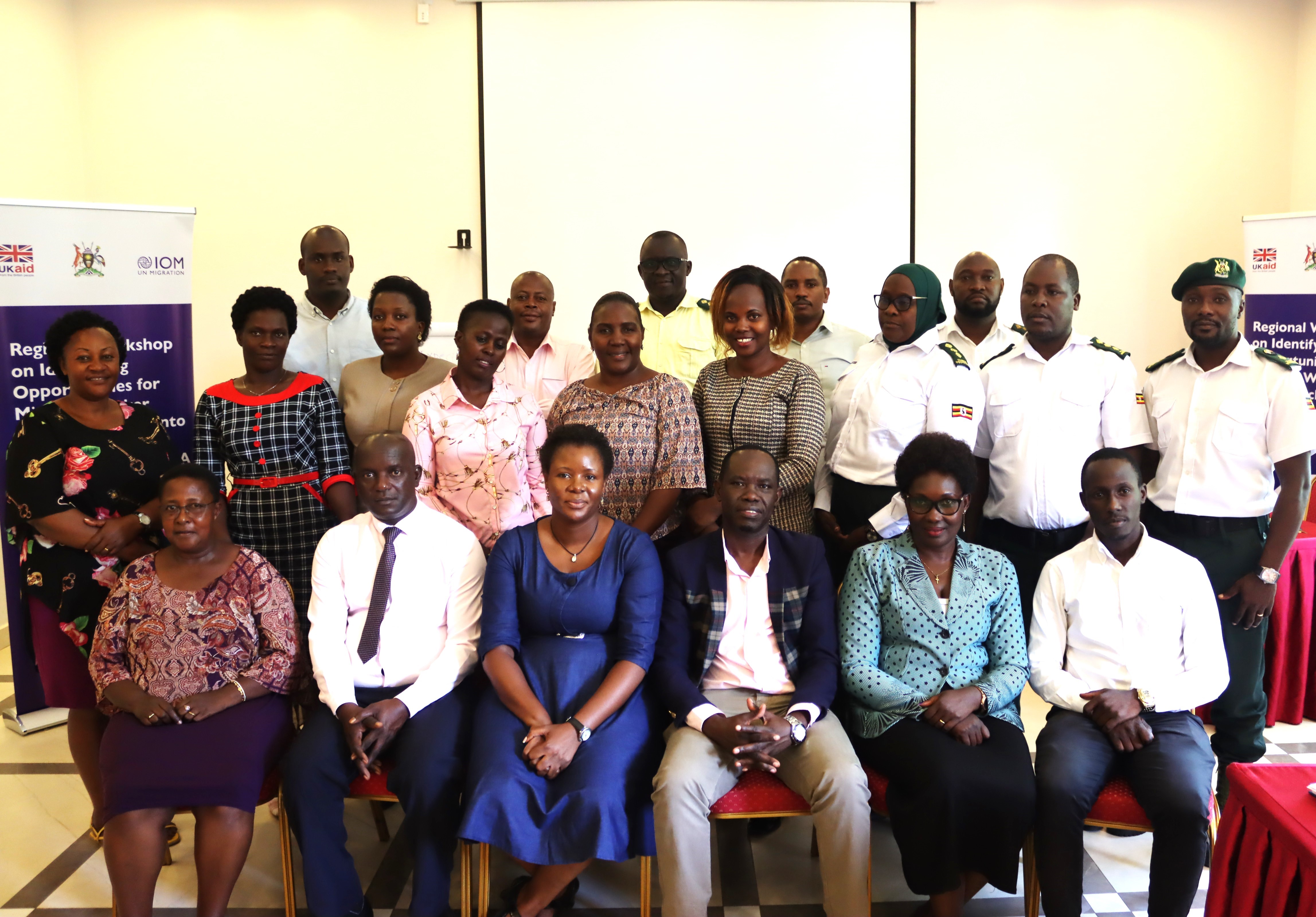-
Who We Are
WHO WE AREThe International Organization for Migration (IOM) is part of the United Nations System as the leading inter-governmental organization promoting since 1951 humane and orderly migration for the benefit of all, with 175 member states and a presence in over 100 countries. IOM has had a presence in Uganda since 1988.
About
About
IOM Global
IOM Global
-
Our Work
Our WorkAs the leading inter-governmental organization promoting since 1951 humane and orderly migration, IOM plays a key role to support the achievement of the 2030 Agenda through different areas of intervention that connect both humanitarian assistance and sustainable development. Across Uganda IOM supports the Government to address migration challenges and build the capacity of relevant stakeholders.
Cross-cutting (Global)
Cross-cutting (Global)
- Data and Resources
- Take Action
- 2030 Agenda
IOM Supports Training of Ugandan Officials on Gender and Migration
Entebbe, Uganda - The International Organization for Migration (IOM) and Uganda’s Ministry of Internal Affairs concluded (16/11) a training on gender and migration, for immigration, border security, and local government officials, as well as youth leaders. The training was part of efforts to better understand the impact of gender on migration and the protection needs of migrants.
A Rapid Assessment on Gender and Social Protection in the East and Horn of Africa report published by IOM in 2022 revealed that, despite the increasing number of autonomous female migrants, most migration is still characterized by gender inequalities exacerbated, in part by the inability of various officials to understand and address gender-specific challenges along the mobility continuum.
“This training and awareness raising is important because for many officials who work at ports of entry, a migrant is a migrant – man or woman – yet there are differences, for instance in the nature and level of vulnerability,” said Victoria Nabiteeko, interim head of IOM Uganda’s Labour Mobility and Social Inclusion.
“Such gender blindness not only fails to address structural inequalities, but also exacerbates deeply entrenched gendered vulnerabilities.”
Derek Basalirwa Kigenyi, the Deputy Coordinator of the National Coordination Office for Prevention of Trafficking in Persons at the Ministry of Internal Affairs, said the training and awareness-raising programme targets districts that host Uganda’s major ports of entry, including the Entebbe International Airport.
“There are gendered gaps, often to the disadvantage of women. We find, for instance, that the men who migrate are usually more informed than female migrants about their migration pathways and what they need to do. The opposite is true for female migrants,” said Kigenyi.

Referring to the increasing number of female migrants, Kigenyi spoke of the need to ensure equality and equity between men and women, in terms of migration opportunities and safety nets.
Without such a gender-nuanced approach, migrants remain at risk of exploitation. Participants who work at Entebbe airport noted that most Ugandan migrant workers passing through the airport are young women, many of them destined for Gulf Cooperation Council (GCC) countries, mostly for domestic work.
“The kinds of jobs that most Ugandan women go to do in the Gulf countries also come with a higher level of vulnerability. A woman working as a domestic servant in someone’s home may have more protection concerns than someone working in a supermarket, for instance,” noted IOM’s Nabiteeko. “That means that migrants – especially young women – going out for domestic work need to know that they must migrate through regular channels. That way, the labour externalization system can at least track and support them in case of protection issues.”
Gender has an impact on remittances too. Most female migrant workers in the Gulf lose their hard-earned wages to unscrupulous relatives, often men, to whom they send their remittances.
In recent years, IOM and various Government Ministries and Departments in Uganda have been running campaigns to sensitize potential migrant workers and the public on safe and regular migration channels. IOM has also supported migrant worker training institutions with curriculum development, covering topics such as financial literacy.
_______________________________
For more information, please contact Richard M Kavuma, IOM Uganda Public Information Officer, on rmkavuma@iom.int / +256 772 709 917
